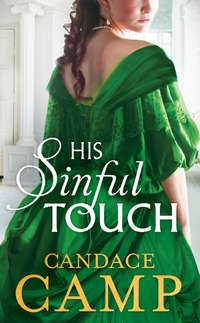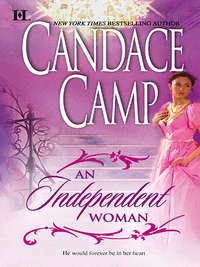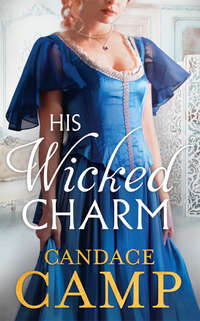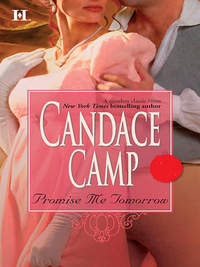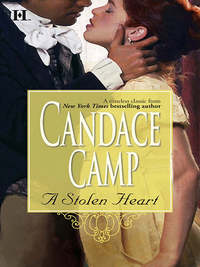
Полная версия
Swept Away
“Julia!” Phoebe looked shocked, but could not keep from bursting into laughter.
At that moment they were interrupted by the tumultuous entrance of a six-year-old boy.
“Mama! Mama! Oh, Auntie, there you are. I was looking everywhere for you. Look what I got!” He held out one grubby hand, palm up, to reveal a prize he knew would be far more appreciated by his aunt than his loving, but strangely squeamish, mother.
“A caterpillar!” Julia cried, echoed somewhat less enthusiastically by Phoebe, and bent down to look at the prize in the boy’s hand. “Wonderful, Gilbert! You didn’t squash it a bit, either.”
Gilbert nodded proudly. “I know. I ’membered what you said, how the green juice was like blood to him, so I didn’t squeeze him.”
“Good lad.”
“Could I keep him?” He looked over at his mother. “Please?”
Phoebe smiled at the boy. Sturdily built, he had an angelic face, with her own light blue eyes and sweet smile, but Selby’s strong chin and jaw. A cloud of bright red-gold curls added to the illusion of a cherub. Phoebe, while she might not share her son’s fondness for worms, snakes and caterpillars, rarely could deny him anything.
“Of course you can, sweetheart. Just make sure to put him in a container, though, or he might frighten the maids.”
“Get Nurse to find a jar for you,” Julia instructed. “And remember, put holes in the top, and a twig and some leaves inside for him.”
Gilbert nodded and bounced out of the room to show his prize to his nurse. Phoebe looked after him with a sigh, her eyes filling with tears. Gilbert, only three years old when his father died, could not even remember Selby. “If only Selby had lived to see him grow up.”
Her wistful words hardened Julia’s resolve. “And he would have lived to see him—if Stonehaven had not hounded him to death. Phoebe, I have to make Stonehaven reveal the truth, don’t you see?”
Phoebe nodded. “I know.”
“If I do nothing, Gilbert will always have to live under the shadow of the scandal. He’ll hear the whispers. People will turn away from him, refuse to meet him or issue him an invitation.” She paused, not adding, “The way they have us.” But Phoebe knew that truth as well as she.
The scandal surrounding Selby and his death had sealed Julia and Phoebe off from “polite society.” Phoebe no longer went to London for the Season. Julia, who had not yet made her debut, had accepted that she never would. The blot on the family name was too great. Even in the small circle of their country acquaintances, there had been those who had cut them. Wherever they went, even church, they saw people whispering and staring. When they had moved to the Armiger London house a few weeks ago, more than one Society matron had looked the other way when she saw them. The memory of the ton was very long.
“No,” Phoebe whispered fiercely. Normally sweet-tempered, a threat to her beloved child was enough to turn her into a fiery avenger. “That cannot happen to Gilbert. We must not let it.” She looked up into her sister-in-law’s vivid blue eyes, and her jaw hardened with determination. “You are right. I was being weak. Of course we must continue to try to prove Selby’s innocence. You do what you must. Whatever it takes.”
Julia grinned. “I knew you would stand firm, Phoebe.” For all her gentle nature and her worries about impropriety, Phoebe alone out of everyone they knew had believed as firmly as Julia herself that Selby was innocent of the accusations and had been as determined to prove it.
Phoebe gave her a quick smile and picked up her sewing again. Then she stopped and looked up questioningly. “But, Julie, dear…how are you going to meet Lord Stonehaven? We don’t go out in Society. Indeed, I am sure that we would not be received even if we tried.”
“No. That is a problem.” Julia did not deem it necessary to tell Phoebe that the kind of woman that she planned to be for Lord Stonehaven would not be one he would meet at Society fetes. It was better if Phoebe did not know quite all the details. “But I’ve been thinking—I believe I can get help from Cousin Geoffrey.”
“Geoffrey Pemberton?” Phoebe’s face cleared, and she smiled. “That’s good. He is a most elegant gentleman, so courteous. I am sure he will know just what to do.”
“No doubt.” Julia did not tell her that she was not seeking her cousin’s advice in the matter, merely his aid in executing her own scheme. She knew exactly how she intended to meet and interest Stonehaven. It was unfortunate that it required the help of some willing male. She was sure that Phoebe would have been alarmed to know that she was seeking out her cousin’s help because he was the least shockable gentleman she knew, and also the laziest. If she kept after him long enough, Geoffrey would eventually give in rather than expend the effort of arguing.
“But, Julia, don’t you think that Lord Stonehaven will be suspicious of your motives, no matter how he meets you? I mean, your being Selby’s sister.”
Julia smiled in a way that Phoebe found a little blood-chilling and said, “Ah, but, you see, I am not going to be me.”
Julia found her cousin alone in his apartments later that afternoon. She had wisely waited until after three to give him time to awaken, eat and get properly dressed for the day, all three occupations that required a great deal of time. When his man ushered Julia into the drawing room, bowing and intoning her name, Cousin Geoffrey looked up at her with a startled stare that reminded her forcibly of a doe spotting a hunter.
“Cousin Julia!” he exclaimed, rising politely and casting a quick, nervous glance around. “What are you doing here?”
“No way to escape, Cuz,” Julia responded cheerfully, coming forward to offer her hand. “Please, sit down. Surely we needn’t stand on ceremony.”
“No. No, of course not. Escape, indeed!” He offered a faint laugh. “As if I did not enjoy your visits to the utmost.”
Julia chuckled. “Don’t lie to me, Cousin. I remember quite well when you told me that you found my visits wearing in the extreme.”
Her cousin smiled languidly. He was a nice-looking man—a trifle plumpish around the waist, but he hid it well with waistcoats, and he boasted a nice turn of leg. Being related to them on their mother’s side, he had escaped the red hair that plagued the Armigers. Selby had often despaired of his bright carrottop hair and easily burned white skin, but Geoffrey’s hair was brown, as were his eyes, and he had a most charming smile. He dressed in the height of fashion, but never to the extremes, for he said that he found keeping up with the latest fads much too taxing. His taste was elegant, as Phoebe had said. His furnishings, like his clothes, were exquisite; his wines were always the best; and if there was a cook better than his, he would not rest until he had hunted him down—in his own lazy fashion, of course—and lured him away from his present employer. Being endowed with enough money to satisfy his expensive tastes and to ensure that he would never have to exert himself, he was a content man.
“My dearest Julia, you know that I am quite fond of you….”
“In your own way,” she interjected, smiling.
“Yes, of course. While it is true that I am a little—shall we say, wary?—of these odd paroxysms of energy that seize you at times, in general you are one of my preferred relatives.”
“Given the way you feel about most of your relatives, I am not sure how much of a compliment that is.”
“I was taken aback, though, to find you visiting me here. For one thing, it isn’t exactly done, you know, calling on a man in his bachelor quarters.”
“What else should I do?” Julia replied pragmatically. “I wanted to see you.”
“A little note dropped by to let me know you were in the city—that’s the ticket. I was quite unaware of your presence, or I would have called.”
Julia dismissed the niceties of proper behavior with a shrug. “Phoebe and I came up a few weeks ago.”
“Ah, the fair Phoebe.” Another smile creased his face. “How is that lovely creature?”
“As kind and sweet and motherly as ever. Not as sad, however. Time tempers all grief, I suppose.”
“Yes. It is only kind, you know. Otherwise, I am sure that we would not be able to live.”
“But neither she nor I have forgotten Selby.”
“Of course not. It’s not to be expected.” He was watching her more warily now, sensing that they were arriving at the meat of Julia’s quest.
“Nor have we forgiven those who drove him to his grave.”
“My dear, you sound positively Greek. Whatever are you talking about?”
“I am talking about clearing my brother’s name. I need your help to do it.”
If she had not been so intent on her mission, Julia would have laughed at the horrified widening of Geoffrey’s brown eyes.
“But, my dear cousin, you know I am not much good at this sort of thing.”
“What sort of thing? You haven’t even heard what I’m going to ask.”
“I mean revenge and all that. Ferreting out clues, finding the guilty party.”
“You won’t have to do much,” Julia assured him. “I just need you to get me inside one of the nicer gaming establishments. Madame Beauclaire’s, to be exact.”
Geoffrey’s eyes now looked as if they might pop right out of his head. “Have you gone mad! A lady at a gambling hell!”
“I wouldn’t call it a hell, would you? I know Selby used to go there, and he said it was quite a genteel establishment. He said that there were even ladies who attended.”
“There are females there,” Geoffrey admitted. “There are even sometimes a woman or two of the ton—but never one who is young and unmarried. Most of the women you would find there are, well, uh…”
“Loose?” Julia suggested.
“Really, Julia, you must stop these frank ways of yours if you are ever to get anywhere in Society.”
“And that, dear cousin, is something we both know will never occur. Not after what happened to Selby.”
He sighed. “I know. It’s a terrible thing. I wish there were something I could do about it….” He shrugged eloquently.
“There is. You can escort me to Madame Beauclaire’s. One cannot get in without an invitation, I’ve heard. I am sure that you would always have an invitation.”
“Of course.” He looked slightly offended that there could be any doubt about the matter. “However, I rarely go. Gambling is so taxing, I find. All that tension—the fear of losing, the excitement of winning. Just watching some of those poor devils is enough to tire me.” When Julia said nothing, merely continued to watch him, he sighed and continued, “What good will it do, anyway? How can your going to Madame Beauclaire’s clear Selby’s name?”
“Lord Stonehaven goes there—so I have heard.” Julia refrained from mentioning that she had observed him entering the small, elegant house on three different occasions—twice with a beautiful woman on his arm. “I need to speak with him.”
Geoffrey groaned. “You’re not going to confront Stonehaven in the middle of Madame Beauclaire’s, are you? It wouldn’t be at all the thing, you know.”
“I’m not that dead to propriety, Geoffrey. I don’t intend to confront the man at all. I simply want to talk to him.”
“If you hope to persuade him that Selby didn’t do it, I must warn you that I think it’s a lost cause. The evidence was overwhelming—those letters Selby wrote, his using that name….”
The trust that Selby had been accused of stealing from had been set up for Thomas St. Leger, the son of one of Selby’s friends. Walter St. Leger, the father, had died when he was only twenty-nine, leaving behind a widow, Pamela, and a young son. While the mother, of course, had the guardianship and care of the boy, the estate had been put into a trust until Thomas reached his majority, and Walter had named as trustees four of his friends: Sir Selby Armiger; Deverel Grey, Lord Stonehaven; Varian St. Leger, who was also his cousin; and Major Gordon Fitzmaurice. The fund was actually administered by an agent in London, who took care of the investments of the trust. The trustees’ job was to oversee the boy’s needs and to direct the agent to remit money to his mother as needed. In theory, any of the four trustees could order the disposition of the money, as long as the request was in writing and was co-signed by another of the trustees. In practice, it had been Selby who most often had made requests for the money, because his estate lay near Thomas’s lands, and it was he who frequently saw the boy and who had the closest relationship with him.
Lord Stonehaven had grown suspicious when he learned that four large sums of money had been withdrawn from the trust within the space of a year, and that each of them had been sent not to Thomas St. Leger or his mother, but to a person named Jack Fletcher at a London address. A search had turned up no such person and no reason for money to be sent to him. The money had simply disappeared. All four letters requesting the transfer of funds had been written in Selby’s hand and signed by him. They had been countersigned, of course: once by Varian St. Leger and three times by Major Fitzmaurice, but neither of the two men could recall the letters. The most damning thing had been the name Jack Fletcher. All the trustees had known that Jack Fletcher was a false name made up by Selby when they were all young men first sowing their wild oats. Upon being caught in some scrape or other at the university, Selby had always blamed it on Jack Fletcher. The name had become something of a joke with him; thereafter, whenever anything happened—an accident or a prank gone awry—he would laughingly say that Jack Fletcher must have done it. He had even gone so far as to invent a family history for the fictitious man and endow him with all sorts of bizarre characteristics and peculiar looks. The fact that the money had been sent to that name seemed an egregiously arrogant act on Selby’s part, a mental thumbing of his nose at the world, and it was taken as proof positive that he had committed the crime.
“I know how damning it looked,” Julia admitted. “It shows you how far the real thief went to make it look as if Selby were the one who had done it.”
“But Selby’s suicide…” Geoffrey said delicately. “Why would he have killed himself if he had not—”
“He didn’t kill himself!” Julia snapped, whirling around to face him. Her eyes blazed, and she set her fists pugnaciously on her hips. “Selby had too much courage for that. He wouldn’t have abandoned Phoebe and Gilbert to the scandal. Phoebe—well, I’m afraid Phoebe thinks that he did kill himself, that he was so upset over the fact that no one believed him that he put an end to it. But I am certain it was an accident. He was at his hunting lodge. He was probably cleaning his gun or—or loading it to go out and shoot, and it went off somehow. No doubt he was so distracted by worry and the feeling of being under suspicion that he was careless in a way he would not have been normally. His death was a direct result of Stonehaven’s hounding him.” She narrowed her eyes at her cousin. “Don’t tell me that you are one of the ones who thought he was guilty.”
“I don’t know what to believe,” her cousin replied honestly. “I would have said he was one of the most honest and trustworthy men I know. It seems inconceivable that he could have betrayed a trust like that. But the evidence—”
“Was faked!” Julia said flatly. “Someone very carefully set out to make sure that Selby was the one blamed for the disappearance of the money. That someone, I am convinced, was Deverel Grey.”
“Lord Stonehaven?” Geoffrey goggled even more. “Really, Julia, if there’s anyone more unlikely than Selby to do such a thing, it is Stonehaven. I never met anyone who was such a stickler about honor and duty.”
“Lip service,” Julia told him with an airy wave of her hand. “Phoebe and I have been thinking and talking about this for a long time. The culprit has to be Stonehaven. He discovered it, and he pursued it diligently.”
“Wait. I’ve lost the scent. If he had done it, surely he would have wanted to keep it secret.”
“Not when he had put so much time and effort into making it appear that another man had done the deed. He probably realized that someone, the agent or one of the other trustees, would soon begin to question the large expenditures. He had carefully established my brother as the criminal. So he exposed him to the world and whipped up public opinion against him. Selby didn’t stand a chance after that of getting anyone to listen to him. The vigor with which Stonehaven pursued him fairly reeks of malice. Why would he have been so intent on destroying Selby if not for the fact that he was desperately trying to hide the fact that he was the real thief?” Julia gave a decisive nod of her head to underscore her point.
“It does make a certain sense,” Geoffrey agreed slowly.
“Of course it does! It had to be someone who knew a great deal about Selby and about the trust. It had to be someone with the opportunity to do those things. Since Phoebe and I know that it was not Selby, then it is obvious that the real culprit must be the one who worked so hard to lay the blame on Selby—Stonehaven.”
“But how? Why? Stonehaven is a very wealthy man, you know. He wouldn’t need to steal money from St. Leger’s trust.”
“So everyone thinks,” Julia replied darkly. “Who really knows about another man’s finances? Don’t you see? That is precisely why I need to talk to Lord Stonehaven. I need to discover the reasons, the means.”
“Do you think he will simply tell you?” Geoffrey assumed a falsetto voice. “‘Oh, Lord Stonehaven, do tell, did you embezzle forty thousand pounds from young Thomas’s trust?”’ He lowered his voice to a gravelly pitch. “‘Why, yes, dear lady, I did. I’m so sorry that you asked, for of course I could not lie.”’
Julia grimaced. “You know I’m capable of being much more deceptive than that. Maybe I won’t be able to get him to confess, but surely I can get enough information out of him that I will be able to figure it out.”
“How can you possibly deceive him when everyone knows you are Selby’s sister?”
“Ah, but very few people in London know who I am. And, of course, I shall give Lord Stonehaven a false name.”
“Of course,” Geoffrey murmured. “I should have realized….”
“Please, Geoffrey…” Julia put on her most winsome expression. “Tell me that you will help me. Say you’ll escort me to Madame Beauclaire’s. That’s all you will have to do. You don’t have to stay with me or see me home or anything. I’ll take care of all the rest.”
“I can’t just abandon you there. I shall have to escort you home.”
“That’s not much,” Julia noted.
Geoffrey sighed. “You always make things sound so reasonable. So simple. Then they wind up an utter wasps’ nest.”
“It won’t. Even if it does, I promise that I will not involve you in it. I will never reveal that you were the one who got me inside.”
Geoffrey cocked one eyebrow at her. “If I refuse, how long are you going to keep after me to do it?”
Julia gave him a dimpling smile and tilted her head to one side, pretending to weigh the thought. “I’d say until the day I die.”
“I thought as much.” He shook his head. “I know I shall regret this. I shall probably end up either in gaol or fighting a duel. But I shall do it.”
Julia let out a little shriek and impulsively hugged him.
“Cousin, please,” he protested. “You’ll wrinkle my cravat!”
“Sorry.” She stepped back, still smiling. “Tonight, then?”
“Tonight!” He looked thunderstruck. “My dear, at least give me a chance to prepare myself.”
“Pooh. There’s no preparation necessary. It’s better to strike while the iron’s hot.” She knew from following Stonehaven that it had been several days since he had gone to Madame Beauclaire’s, so this evening seemed an opportune moment. However, she could hardly tell Geoffrey her reasoning.
“Where do you get such vulgar expressions?” Geoffrey drawled. “All right. You win. Tonight it will be.”
It took all Julia’s and Phoebe’s combined efforts to get her ready in time. She had decided to wear one of Phoebe’s dresses, since a married woman’s wardrobe allowed for a more flamboyant selection of color than the pastels and whites to which maidens were relegated. Though Phoebe’s blond looks were not enhanced by some of the jewellike colors that flattered Julia’s vivid coloring, there were a few gowns of suitable appearance and style, primarily one of a vivid peacock blue satin that made Julia’s blue eyes bright pools of color and also was a perfect complement to her auburn hair and creamy skin.
Since Phoebe was both shorter and rounder, the dress required some creative work on the seams and hem. But Phoebe was a fair hand with the needle, and the dress, fortunately, was stylishly narrow, so there was not much hem to lengthen. After Phoebe was through with it, Julia took the dress to her room and quickly pulled out the threads that held the ruffles of lace in place at the neckline, thereby lowering the neck of the dress to a level that would have horrified Phoebe. An upswept hairdo with artfully arranged wisps of curls gave her a stylish but somewhat tousled look, which she thought would surely make a man think of running his hands through her hair. The newly redone dress, when she pulled it on and fastened it, fit her like a glove. The high waist and low neckline combined to cup and reveal her full breasts to their best advantage, and the long, narrow skirt emphasized the slender length of her legs. Her cheeks were flushed with excitement, and her eyes blazed. She had not, she thought, ever looked better.
Julia suffered a brief qualm as she thought of the acting job that lay before her. She must convince a man whom she despised that she was attracted to him. She must also make him believe she was an experienced woman of the world, fully capable not only of arousing a man’s desire, but also of fulfilling it, for if he thought she was the well-bred young lady fresh from the country that she really was, he would doubtless keep his passions leashed, and that was the last thing she wanted. His desire must well up hot and strong, the kind of feeling that could sweep a man into revealing far more than he normally would. Whatever she had told her cousin and Phoebe about merely talking to Lord Stonehaven, her real intention was to bring him so quiveringly close to the brink of mindless passion that he would reveal anything.
Prudently, she wrapped her cloak around her before she descended the stairs to meet Geoffrey. It would not do for either him or Phoebe to get a glimpse of how her dress actually looked. Geoffrey would probably not be as shocked as Phoebe would, but he was all too likely to pronounce that her attire was “not the thing” and refuse to take her until she changed. When she entered the drawing room, Phoebe, who had been chatting with Geoffrey, sprang to her feet.
“Julia! You look beautiful!”
“Egad, Cuz,” Geoffrey added. “Indeed you do. I shall be the most envied man in the room tonight.”
Julia favored him with a dazzling smile. Phoebe came forward to hug her and whisper a wish for good luck to her. Then Julia took Geoffrey’s arm, and they left.
The carriage drive was not long, for which Julia was grateful. She could not keep her mind on the languid chitchat in which Geoffrey engaged. The knot of nerves in her stomach grew as they drew closer to the gaming house, and by the time they pulled up in front of the small, elegant structure, she was afraid she might disgrace herself and ruin everything by being sick.
She took Geoffrey’s arm with an icy hand and walked up the steps to the house, hoping that she looked calm rather than terrified. Geoffrey was greeted with courteous familiarity at the door and quickly ushered inside. She felt the eyes of more than one occupant of the house turn toward her as they strolled in, but she was too busy gazing all around her at the strange atmosphere to pay attention to anything else.
It was a house like many others, decorated with no lack of taste or expense, with the difference that instead of couches and chairs and the usual things that filled the drawing room and dining room, the rooms opening off the entry were furnished with tables and chairs, all filled by men playing cards. There were only two women among the fifteen or twenty men she could see. One was a silver-haired woman with a fortune in jewelry around her neck and at her ears. Her eyes were fixed intently on the cards in her hand, and a feverish spot of red colored each cheek. The other female was a petite woman with improbably blond hair and an overly voluptuous figure stuffed into a gown designed for a sylph. Julia’s first thought was that the woman looked vulgar, but she quickly reminded herself that she, too, was dressed in less-than-ladylike attire.


